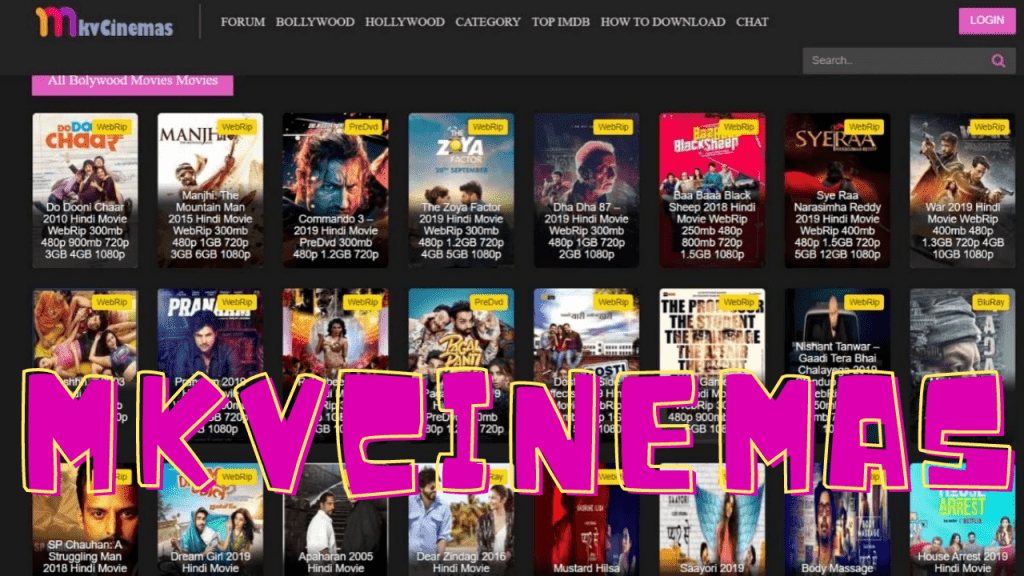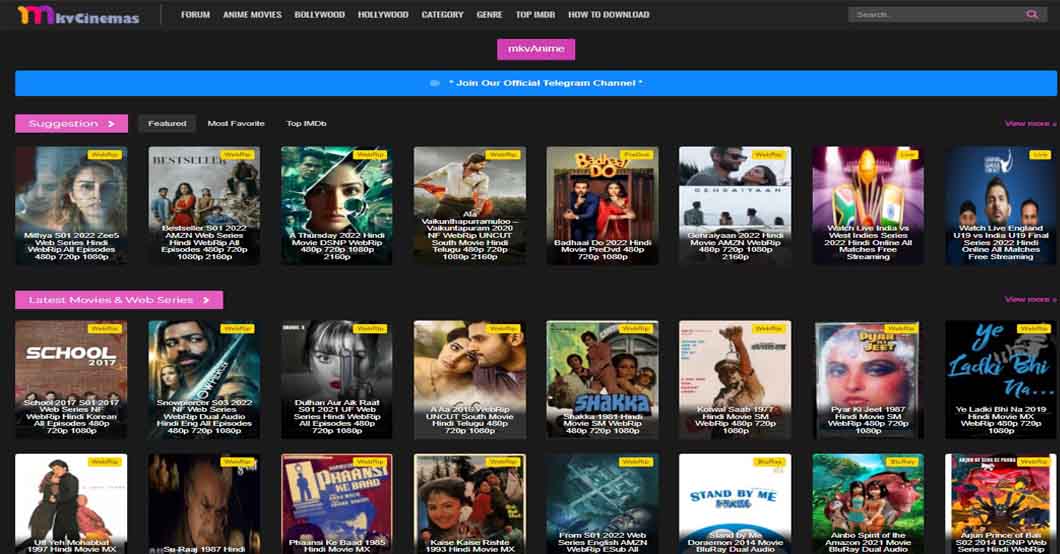A Deep Dive Into The World Of Movie Enthusiasts
When it comes to enjoying films in the comfort of your own home, the MKV format has become a popular choice among cinephiles and casual viewers alike. MKV cinema refers to the experience of watching movies in the MKV format, which allows for high-quality video and audio while supporting a multitude of codecs and features. This article will delve deep into the allure of MKV cinema, exploring its advantages, compatibility, and the tools needed to enjoy this cinematic experience fully.
The rise of digital media has transformed the way we consume films, making it easier than ever to access a vast library of content. MKV, short for Matroska Video, is an open-source file format that can contain an unlimited number of video, audio, subtitle, and metadata tracks in one file. This flexibility has made MKV cinema a preferred choice for many, enabling viewers to enjoy their favorite films without compromising on quality. The format's robust capabilities cater to the desires of both casual viewers and dedicated film buffs.
As the demand for high-definition content continues to grow, MKV cinema stands out for its ability to deliver superior quality across various devices. Whether you're watching a blockbuster film on a large screen or streaming an indie flick on your smartphone, the MKV format ensures that the experience remains immersive and enjoyable. In this article, we will explore the many facets of MKV cinema, answering key questions that will help you understand and appreciate this modern cinematic experience.
What is MKV Cinema?
MKV cinema refers to the practice of enjoying films and videos stored in the MKV (Matroska Video) format. This versatile format is known for its ability to house multiple video and audio streams, subtitles, and metadata in a single file. Because of this, MKV has gained popularity for its flexibility and high-quality output, making it an ideal choice for movie enthusiasts who want to experience films as intended by their creators.
Why Choose MKV Cinema Over Other Formats?
There are several reasons why MKV cinema has become a go-to choice for many viewers:
- High Quality: MKV files can store high-definition video and audio, offering a superior viewing experience.
- Multiple Audio Tracks: You can enjoy films with different language options or sound formats.
- Subtitles: MKV files often come with built-in subtitles, catering to a diverse audience.
- Compatibility: Many modern media players and devices support the MKV format, making it easy to play your favorite films.
What Devices Support MKV Cinema?
MKV cinema is supported by a variety of devices, including:
- Smart TVs: Most smart TVs can play MKV files directly from USB drives or streaming services.
- Media Players: Players like VLC, Kodi, and Plex support MKV playback.
- Computers: Both Windows and macOS systems can easily handle MKV files with the right software.
- Mobile Devices: Many smartphones and tablets support MKV playback through dedicated apps.
How to Convert Videos to MKV Format?
Converting videos to MKV format is a straightforward process, thanks to a variety of software options available:
Are There Any Limitations to MKV Cinema?
While MKV cinema has many advantages, it also comes with some limitations:
- File Size: MKV files can be larger than other formats, which may pose storage issues.
- Compatibility Issues: Some older devices may not support MKV playback.
- Encoding Time: Converting videos to MKV format can take time, especially for large files.
What Tools Are Essential for MKV Cinema?
To make the most of your MKV cinema experience, consider the following tools:
- Media Player: VLC Media Player or Kodi for optimal playback.
- Conversion Software: HandBrake or Any Video Converter for file conversion.
- Subtitles Management: Subtitle Edit or MKVToolNix for managing subtitle tracks.
What is the Future of MKV Cinema?
As technology continues to evolve, the future of MKV cinema looks promising. With the ongoing development of streaming services and advancements in media player capabilities, MKV files are likely to remain a popular choice for both content creators and consumers.
Can MKV Cinema Compete with Streaming Services?
While streaming services offer convenience, MKV cinema provides a unique experience that many film enthusiasts appreciate. The ability to curate a personal library of high-quality films, combined with the flexibility of the MKV format, makes it a compelling alternative to traditional streaming platforms.
How Can You Enhance Your MKV Cinema Experience?
To elevate your MKV cinema experience, consider the following tips:
- Invest in Quality Equipment: A good media player and audio system can significantly enhance your viewing experience.
- Organize Your Library: Use software like Plex to manage your MKV collection efficiently.
- Explore Subtitles: Enhance your viewing by using subtitles in different languages or formats.
In conclusion, MKV cinema offers a versatile and high-quality way to enjoy films, making it a favorite among movie enthusiasts. With its compatibility, support for multiple audio tracks and subtitles, and robust features, the MKV format is here to stay. As we continue to embrace digital media, understanding and utilizing MKV cinema will enhance our cinematic experiences for years to come.



ncG1vNJzZmixn6PAtr7IZqWeq6RjsLC5jq2pnqaUnruofY6moq9lk567prnAZ5%2BtpZw%3D